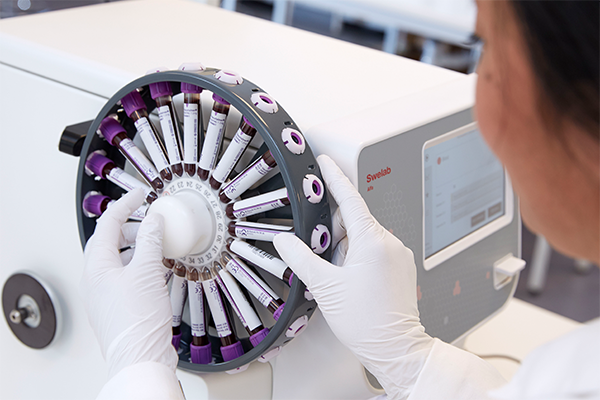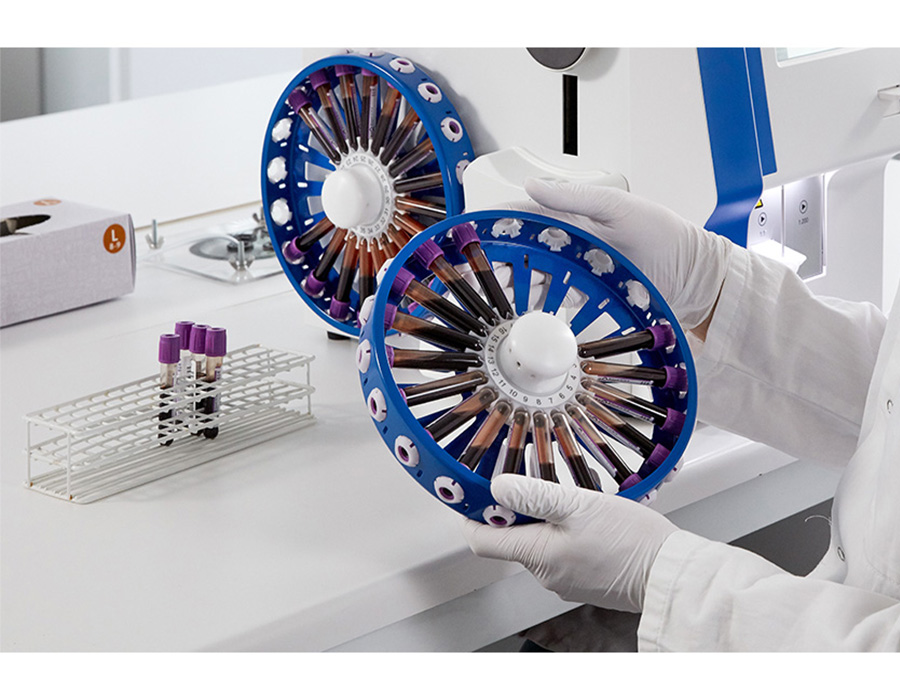Gentle mixing to prevent pre-analytical errors, affecting test result
Pre-analytical errors constitute a large part of the total number of errors that may affect the cell count test results (1). Too vigorous mixing of the collected blood can cause cell injury or hemolysis (2). Delayed or omitted mixing of the sample prior to analysis can cause blood clotting, which has been reported to constitute a significant part of all preanalytical errors (1,3). Automated mixing of the sample tube is therefore recommended to enable immediate mixing of the specimens after collection.
Gentle mixing prevents clotting
For a complete blood count (CBC), the blood is collected in an EDTA tube and gently mixed prior to analysis to prevent clotting. When working under stress, it can be easy for healthcare workers to forget the mixing step (3). Boule hematology analyzers Swelab Alfa Plus and Medonic M32 are therefore available with an autosampler function with a built-in mixer. The mixer design allows continuous mixing of the queued samples.
Constant mixing of the sample can also be important for samples with high erythrocyte sedimentation rate. As Boule hematology analyzers, to large part, are being used in fever investigations, a high sedimentation rate can be expected in many samples tested with these systems.

Use of capillary blood for pediatric sample analysis
Boule hematology analyzer models equipped with the micropipette adapter (MPA) function allows CBC testing from a capillary blood sample taken directly from patient from which a venous blood sample may not be available, for example, in pediatrics, geriatrics, or oncology. The MPA inlet does not demand any sample preparation, such as mixing, before analysis. Instead, the function allows direct analysis of a fingerstick blood sample collected in a capillary tube.
Learn more
Read more about the clinical utility of the Boule autosampler function and MPA inlet from the article Coronavirus COVID-19 diagnostics – learnings from China adopted in Honduras.
References
- Karlsson et al. Delayed mixing of vacuum tubes clearly affects platelet counts but not haemoglobin concentration and prothrombin time (INR) results. Int J Lab Hematol 35, 15–17 (2013).
- Simundic et al. Joint EFLM-COLABIOCLI Recommendation for venous blood sampling. CCLM 56, 2015-2038 (2018).
- Hjelmgren, H. Pre-analytical errors in blood sampling procedures in paediatric hospital care. Thesis Karolinska Institutet. Universitetsservice US-AB, Stockholm, Sweden. ISBN 978-91-8016-485-6 (2022).
